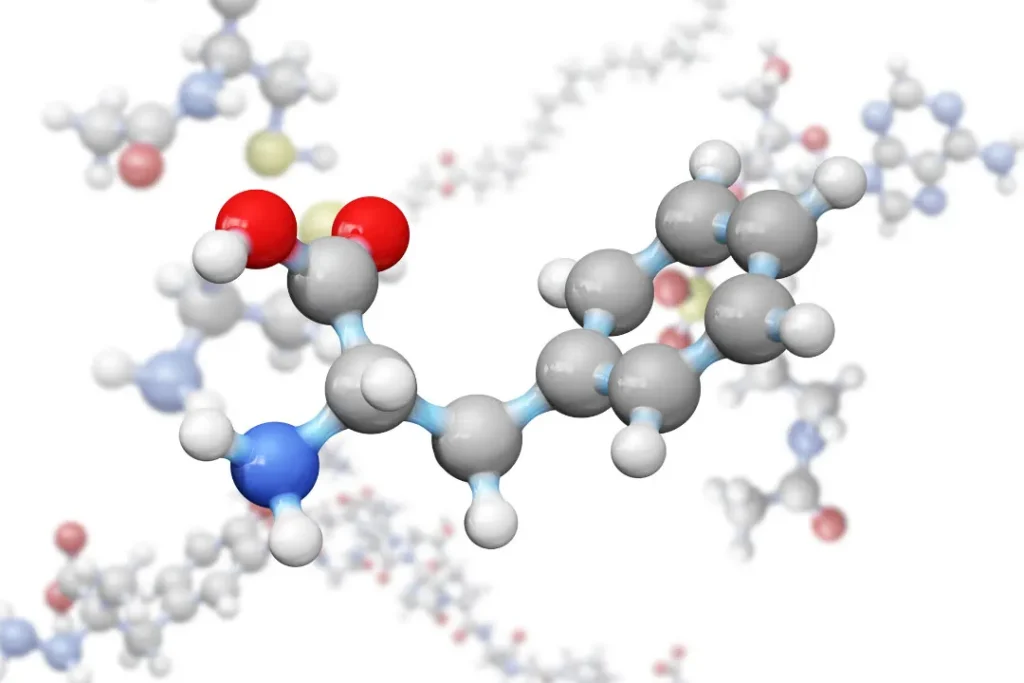A crucial protein called collagen type II, which serves as the building block of cartilage in the human body, has become a well-liked dietary supplement. The purpose of this article is to examine collagen type II’s properties, health advantages, recommended dosage, possible side effects, and drug interactions, as well as its chemistry and physiological processes of action.
You May Also Like:
New Covid Variant Symptoms: Top 8 Ways To Be Prepared
Canada Balsam: Benefits, Dosage, Side Effects, Drug Interactions, and Other Important Information
The Nature of Collagen Type II
The most prevalent protein in animals, collagen is a complex family of proteins that gives tissues like skin, bone, tendons, and cartilage form and strength. Collagen comes in 28 different identified varieties, with kinds I, II, and III being the most prevalent. Particularly in type II collagen, tensile strength and stiffness are benefits provided by its presence in joint cartilage.
Similar to kinds I and III, collagen type II is a fibrillar collagen chemically. It is made up of three peptide chains that have been tightly coiled into a triple helix. Collagen has a distinct structure and function because of each chain’s extensive sequence of amino acids, principally glycine, proline, and hydroxyproline.
Health Benefits of Collagen Type II
Research points to numerous health advantages of collagen type II supplementation, particularly for autoimmune diseases and joint health.
- Joint Wellness: The main protein in cartilage, a tissue that cushions joints, is collagen type II. Cartilage can deteriorate over time or as a result oftrauma and strain, which can cause joint discomfort and conditions like osteoarthritis. Collagen type II supplements may benefit joint health by giving the body the building blocks it needs to maintain and repair cartilage.
Numerous clinical studies suggest taking supplements of collagen type II helps reduce the pain and stiffness associated with osteoarthritis. Athletes and people at high risk of joint deterioration may benefit from it as well. - Autoimmune Conditions: Collagen type II therapy for autoimmune diseases, particularly rheumatoid arthritis, in which the immune system wrongly targets joint tissues, is gaining interest. Based on the idea of oral tolerance, which teaches the immune system to see food proteins as safe, this is done.
It is hypothesized that ingested type II collagen interacts with immune cells in the gut to promote tolerance to the body’s own collagen and lessen joint injury and inflammation. Although first trials have yielded promising results, more analysis is required to confirm these outcomes and establish the best dosage and treatment regimens.

Chemistry of Collagen Type II
The fibrillar collagen group, the most prevalent class of collagen in the human body, includes collagen type II. Its triple helix molecular structure is made up of three alpha chains, each of which is made up of a group of amino acids. The distinctive strength and suppleness of collagen are due to its tripartite structure.
The amino acids glycine, proline, and hydroxyproline have a significant role in the composition of collagen type II. It’s interesting to note that glycine, which is essential to collagen’s tight triple helix shape, occurs every third residue in the amino acid sequence of the alpha chains. Collagen is the only protein that contains hydroxyproline, which helps to stabilize the helical structure.
It’s also important to remember that collagen type II is a homotrimer, which means that each of its three alpha chains is identical [1(II)]3. Collagen type II builds the structure for articular cartilage in the body by arranging itself into fibrils and fibers, giving the tissue strength and resiliency.
Active Physiological Mechanisms of Collagen Type II
Collagen type II contributes to the formation of cartilage and creates a network that gives the cartilage its tensile strength and hardness, which is largely how it has physiological impacts on the body. Collagen type II supplements give the body the building blocks it needs to maintain and repair this vital tissue.
Collagen type II supplementation is believed to help cartilage repair in the context of osteoarthritis. This is important because osteoarthritis results in the deterioration of this tissue, which impairs movement and causes joint discomfort. The body converts the collagen type II supplied into peptides and amino acids, which are then used for cartilage repair and maintenance.
The idea of oral tolerance is important in autoimmune diseases like rheumatoid arthritis. Collagen type II plays a part in this. Collagen type II is thought to work with your immune system in the gut after ingestion by training it to view your body’s own collagen as non-threatening and lowering the immunological reaction against joint tissues. Theoretically, this process ought to reduce joint injury and inflammation.
Overall, collagen type II’s physiological effects are directly related to its structural function in the body and its propensity to affect the immune system, offering a natural means of addressing problems with joint health and autoimmune diseases.

Optimal Dosage of Collagen Type II
Depending on your current well-being and the intended application, different collagen type II dosages are recommended. Studies have often employed daily doses between 2.5 and 15g for joint health, frequently in conjunction with glucosamine and chondroitin, two minerals that assist joints. To optimize contact with immune cells, relatively smaller dosages are utilized for autoimmune diseases, often 10-100mg given on an empty stomach.
Potential Side Effects of Collagen Type II
Type II collagen is typically regarded as safe with little negative effects. Minor stomach discomfort is possible for some people, especially at higher dosages. Although they are uncommon, allergic reactions can happen, especially in people who are allergic to chicken or other substances in the supplement.

Potential Substance Interactions with Collagen Type II
In terms of interactions, most drugs and foods are unlikely to interact with collagen type II. However, it is always best to see a healthcare expert before beginning any new supplement, especially if you have pre-existing health concerns or are using drugs.
The best way to determine how Collagen is interacting with other agents in your body it so limit your intake of other supplements so you can isolate any negative episodes or reactions and correlate them to what might be colliding with your Collagen doses.
Responsible Use of Collagen Type II
Collagen type II as a supplement provides a promising, natural way to improve joint health and maybe control autoimmune disorders. It is not, however, a panacea and should be used in conjunction with a comprehensive health approach that includes a balanced diet, frequent exercise, and medical monitoring.
Quality is important in any supplement. Choose products from reliable firms that are upfront about their sourcing and manufacturing procedures. And, before rising to the suggested or prescribed amount, always start with a lesser dose to check tolerance.Collagen type II, a crucial structural component in cartilage, has the potential to improve joint health and prevent autoimmune illnesses.
While study is ongoing, current evidence suggests that it can be used safely and effectively as part of a well-rounded approach to health and wellness. Understanding the nature of collagen type II and its possible advantages can help people make informed decisions regarding their health and supplement routine.

Collagen Type II: Conclusion
Collagen type II is a popular additive that you can use with food to promot joint and cartilage health. The beauty of Collagen is that it’s very simple to implement in your diet, often consisting of a tasteless and odorless powder that you can include in soups, drinks, and atop solid foods.
Since it’s mostly harmless, the potential benefits for your body are well worth considering Collagen in your diet as a regular occurence. However, like with all supplements, it’s important to run it by your doctor first and make sure you don’t have any underlying health conditions that would complicate the addition of Collagen in your daily life.
With the right amount of caution, Collagen type II can produce gainful benefits for you.
References:
- “Considering collagen drinks and supplements?” Retrieved from: https://www.health.harvard.edu/blog/considering-collagen-drinks-and-supplements-202304122911
- “How much collagen can I take?” Retrieved from: https://www.fortheageless.com/blogs/ageless-buzz/how-much-collagen-take-each-day#:~:text=Is%201000mg%20of%20collagen%20a,between%202.5g%20and%2015g.
- Effects of Native Type II Collagen Treatment on Knee Osteoarthritis: A Randomized Controlled Trial. Retrieved From: https://www.ncbi.nlm.nih.gov/pmc/articles/PMC4970562/
Important Note: The information contained in this article is for general informational purposes only, and should not be construed as health or medical advice, nor is it intended to diagnose, prevent, treat, or cure any disease or health condition. Before embarking on any diet, fitness regimen, or program of nutritional supplementation, it is advisable to consult your healthcare professional in order to determine its safety and probable efficacy in terms of your individual state of health.
Regarding Nutritional Supplements Or Other Non-Prescription Health Products: If any nutritional supplements or other non-prescription health products are mentioned in the foregoing article, any claims or statements made about them have not been evaluated by the U.S. Food and Drug Administration, and such nutritional supplements or other health products are not intended to diagnose, treat, cure, or prevent any disease.


